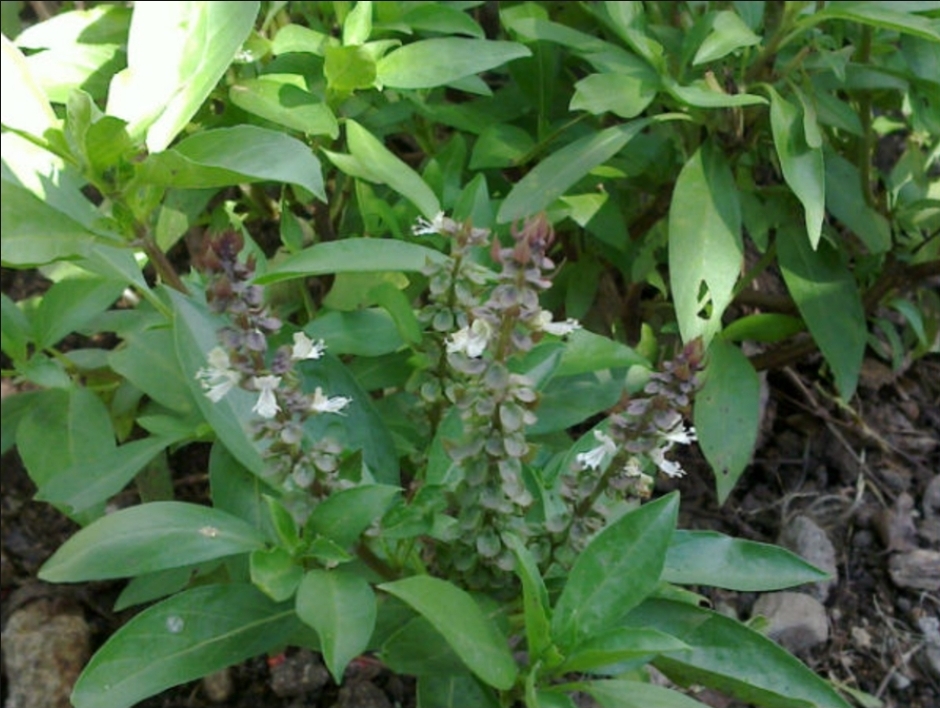Welcome to your holistic living

Botanical Name: Ocimum basil
Family: Lamiaceae
English Name: Sweet basil
Malayalam Name: Ram tulasi
Hindi Name: Babul
Tiruneerpachai (Ocimum basilicum), known as Shubhra Tulasi in Sanskrit, is an aromatic annual herb belonging to the basil family. It has broad green leaves with a sweet fragrance, small white or purple flowers, and thrives in warm tropical regions. Widely used as a culinary spice and in traditional medicine, it possesses digestive, antimicrobial, and anti-inflammatory properties. In Tamil culture, it is valued both for its medicinal benefits and spiritual significance Habitat : Annual aromatic herb, 30–90 cm tall. Stem: Quadrangular (typical of Lamiaceae family), green, sometimes purplish. Leaves: Opposite, simple, ovate, green, smooth or slightly toothed, with strong fragrance. Flowers: Small, white or purplish, arranged in terminal spikes. Fruit: Small, dry nutlets (schizocarp type). Seeds: Black, mucilaginous when soaked in water (used in drinks like falooda).
Whole plant
1. Antioxidant and Anti-inflammatory: Basil contains potent antioxidants like orientin and viceninare, which help combat oxidative stress and reduce inflammation in the body. 2. Immune Support: Its antibacterial properties, along with vitamins A, C, and E, enhance the immune system's ability to fight infections. 3. Respiratory Health: Compounds in basil, such as eugenol, cineole, and camphene, may help with respiratory conditions by acting as bronchodilators and mobilizing mucus, according to IJCRT and Dabur. 4. Stress Reduction: Holy basil, in particular, is recognized for its adaptogenic qualities, which can help the body cope with stress and improve mental clarity. 5. Oral Health: Basil acts as a natural mouth freshener and disinfectant, destroying bacteria responsible for plaque, tartar, and bad breath, and helping with mouth ulcers. 6. Detoxification and Protection: Holy basil has demonstrated properties that protect against toxins, including environmental pollutants, pesticides, and heavy metals. 7. Wound Healing: Basil oil has properties that are beneficial for wound healing.
Antimicrobial – antibacterial, antifungal Antioxidant – prevents oxidative stress Anti-inflammatory – reduces swelling, paiβ-sitosterol / Carminative – relieves bloating, indigestion Antispasmodic – relaxes smooth muscles Hepatoprotective – protects liver Cardioprotective – supports heart health Neuroprotective – memory-enhancing, calming Anti-stress (mild adaptogen) Anti-ulcer – protects gastric mucous
Rasa: Katu, Tikta
Guna: Laghu, Ruksha
Virya: Usna
Vipaka: Katu
Dosha Karma: Vatakapha hara